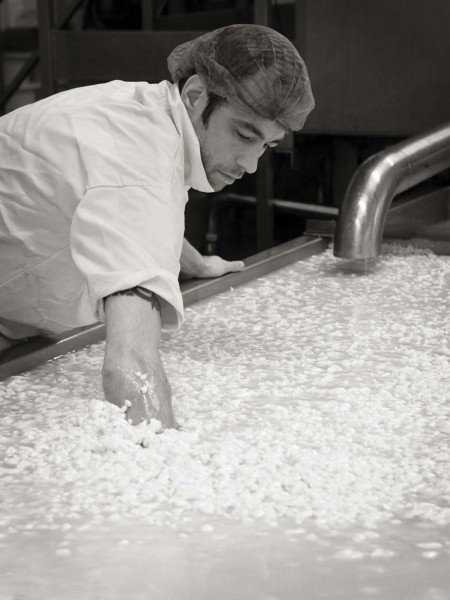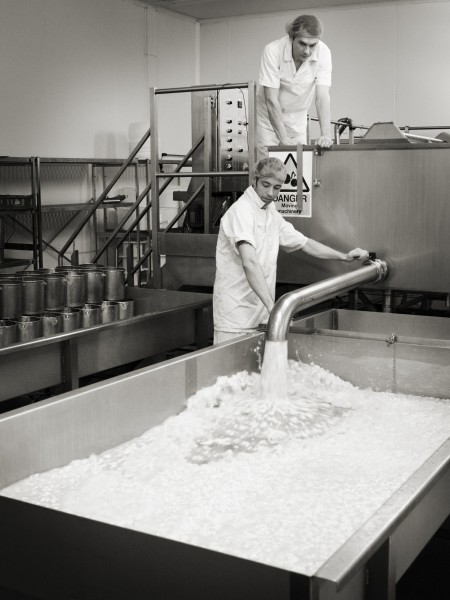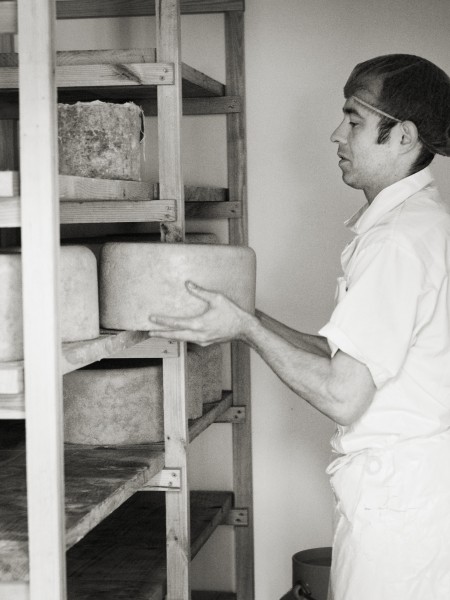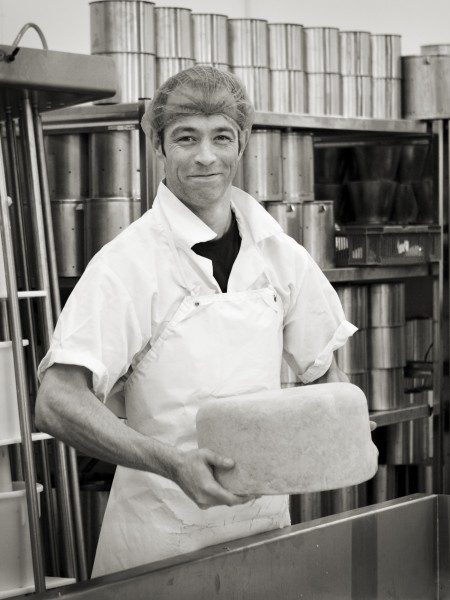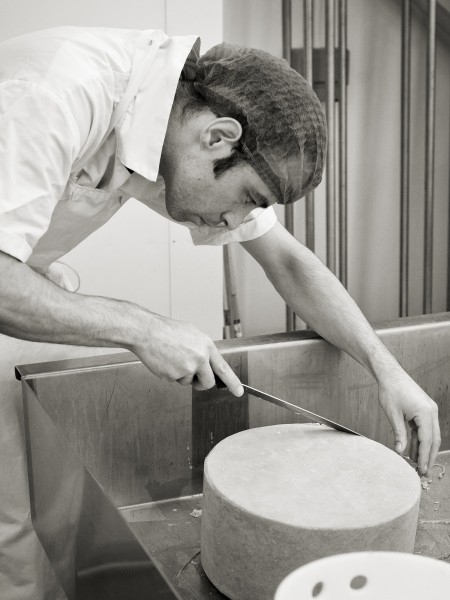Q. What is your principle professional skill?
A. Artisan Cheesemaker.
Q. Can you tell us a little about it?
A. It’s a rare thing to be able to be in, an opportunity to bring back a nearly lost skill. It’s incredibly challenging. I love cheese, I spend a lot of my spare time talking about cheese!
Q. How long have you been practising your skill?
A. Two years. But through my grandmother there is a family interest. It is her recipes that are used here.
Q. How did you learn your skill?
A. I had a wonderful opportunity to learn under Scott Sutherland Thomson and John Knox. It has been a privilege to learn the trade.
Q. How long did it take?
A. It’s an ongoing process. It’s something you never stop learning about.
Q. Are there any other people in the region doing what you do?
A. There are a number of small artisanal cheesemakers but we are traditional and unpasteurized.
Q. How important do you think your skill is for the region?
A. From a historical context, after intense mechanization, the small hand crafted skills are coming back. This is important in terms of preserving the providence of what we do.
Q. How has your profession evolved over the last few decades?
A. My grandmother made cheese very much to feed the family. Then there were 2 to 3 decades when the scaremongering affected unpasteurized cheese but now we are coming back to unpasteurized products, the job is however 1 part making 2 parts cleaning.
Q. What are the main differences between now and when you started?
A. Never had something as all encompassing, from making and dressing the cheese, packing and visiting customers, from start to finish, that is rare in this day and age.
Q. How do you anticipate the future to be for your skill?
A. Hopefully it will go from strength to strength. Creating new products, eg. smoked cheese. We do things in the most traditional way possible. There is no processing. You take a pride in what you do.
Q. How important do you think it is to pass the skill on to the next generation?
A. The recipes are my grandmother’s. My uncle owns the company. It is a dream come true. Very important.
Q. How could that be achieved?
A. In the long run, running workshops through the WRI, the Rotary Clubs, etc. Raising awareness.
Q. Would you be prepared to train someone?
A. In the future, yes.
Q. Do you think that society should feel obliged to find a way of preserving such skills?
A. Absolutely. Industrialisation and mechanization for the sake of making things easy is not always the best.
Q. Does having a skill change the way you see the world?
A. Yes, cheese is unique. I am passionate about it.
Q. What kind of rewards do you get from your skill, monetary and/or otherwise?
A. As much a reward coming to work in the heart of the Cairngorm National Park.
Q. What impact has broadband and the internet had on your work?
A. Social networking for marketing.
Q. How do you use the internet for your work?
A. That’s not my role.
Q. What, if anything could be done to help to preserve your skills and support your profession?
A. It would be nice to see agricultural colleges taking cheese making on. There is a need for more companies like this one and for support for small companies.
